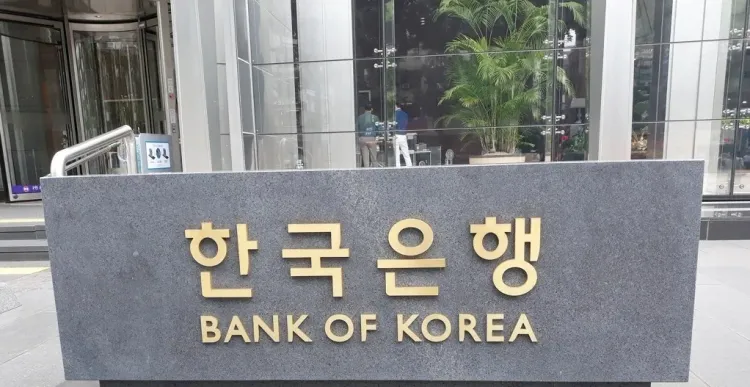BOK Alerts on Financial Market Instability Due to Rising Debts

Synopsis
Key Takeaways
- BOK warns of financial market volatility.
- Household debts have risen significantly.
- Real estate market risks need close monitoring.
- Economic growth forecasted to slow down.
- Insolvency among vulnerable households is increasing.
Seoul, March 27 (NationPress) The Bank of Korea issued a cautionary note on Thursday regarding the potential for heightened volatility in the financial market, which could jeopardize the nation’s financial stability amid sluggish economic growth and significant uncertainties both domestically and internationally.
The central bank emphasized this in its latest financial stability report, highlighting the need for vigilant oversight of risks associated with the real estate market and household borrowing. This comes in light of the recent uptick in housing prices in Seoul and nearby areas, as reported by Yonhap news agency.
According to the BOK, "The South Korean financial system has generally stabilized, supported by the resilience of financial institutions and external payment capabilities. However, amidst high uncertainties and low economic growth, there is a likelihood that price volatility in the financial market could escalate due to domestic or external shocks," the report stated.
The BOK projects that South Korea's economy will grow by 1.5 percent in 2025, a slowdown from last year's 2 percent growth, primarily attributed to falling exports and weak domestic demand.
“Downward pressure on economic growth has intensified due to domestic political conditions and shifts in the economic policies of major countries, which could impede improvements in the financial soundness of borrowers and financial institutions,” it further noted.
The BOK identified recent turbulence in the real estate market and its potential repercussions on household debts as significant risk factors.
Outstanding property-related debts reached 2,681.6 trillion won (approximately US$1.83 trillion) by the end of 2024, reflecting a 4.8 percent year-on-year increase, equivalent to 105.2 percent of the nation’s nominal GDP.
As of the end of February, banks reported that outstanding household loans rose by 3.3 trillion won from the previous month, totaling 1,143.7 trillion won, according to BOK data.
“Lower interest rates could influence household debts. We are actively monitoring the market and will take appropriate measures as needed,” stated Lee Jong-ryeol, a deputy governor of the BOK, during a press briefing.
In February, housing prices in Seoul recorded the fastest growth in three months after the Seoul city government relaxed parts of the land transaction permission system in certain areas of Gangnam, Seocho, and Songpa.
In response to the surge in home prices, the government reinstated the regulatory system last week.
The central bank also highlighted that increasing insolvency among vulnerable groups could impact overall financial health.
The count of high-risk households in terms of debt repayment capabilities stood at 386,000 by the end of March 2024, accounting for 3.2 percent of the total households in the country.
Moreover, the number of households lacking debt repayment capacity, whether due to insufficient income or assets, totaled 3.56 million, representing 29.7 percent of all households with financial debts.
“We anticipate an increase in such households, particularly in nonmetropolitan areas, due to rising unsold properties and a sluggish construction sector,” the BOK remarked.
In contrast to the greater Seoul region, the real estate market in provincial areas continues to remain subdued.









